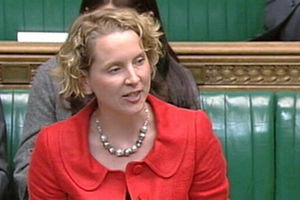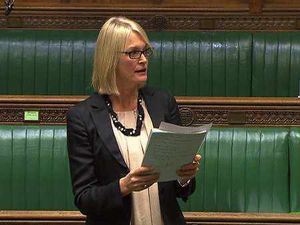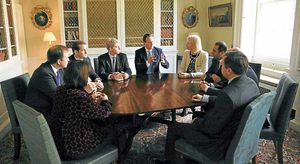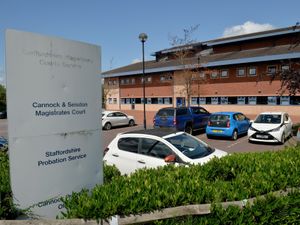Politics: Is it for men only?
Being an MP can be seen as a powerful position to have but is it still deemed no place for a lady?

There is a wry smile from Emma Reynolds as she recalls the tale about a colleague who was first elected to Parliament in 1987.
"She had to complain because there were only male toilets in the Commons, there were no 'ladies'," she says.
"Of course, Parliament had for centuries been a male-dominated environment, but it does make you think you are not quite part of the mainstream."
It certainly seems incredible that at the time when Margaret Thatcher was at the height of her power, nobody in the Mother of Parliaments had considered it necessary to cater for women.
As shadow housing minister, Wolverhampton North East MP Miss Reynolds is one of the rising stars of Ed Miliband's shadow cabinet.
The under-representation of women in Parliament is in the spotlight again following the resignation of Maria Miller, which has left David Cameron with just three women in his Cabinet.
And Miss Reynolds says while the House of Commons has come a long way over the past quarter of a century or so, there are still plenty of obstacles that women in politics have to overcome.
"Just over 20 per cent of MPs are women," she says.
"For every woman in Parliament, there are four men. I would say Westminster has a problem with women."
Tory backbencher Mary Mcleod is due to present her report next month on how Parliament can be made more female friendly, as it emerged that 11 existing women MPs will not be contesting their seat at the next General Election.
Eleven of the MPs – seven Labour and four Conservative – have already said they will not be seeking re-election next year, and a 12th – Tory Anne McIntosh – has beendeselected by her own constituency party.

Miss Mcleod has said that many women are put off by the 'bullying and ganging up' and other 'childish' behaviour which goes on the male-dominated Commons.
"I have been in business for 20 years and therefore I do get frustrated at how Parliament works, it is not altogether professional or organised," she has said.
"Just take the behaviour in the chamber. You wouldn't tolerate that in the boardroom or the classroom."
However, Margot James, the Tory MP for Stourbridge and former party vice-chairman, said people need to be careful not to exaggerate the problem.
"I think it's a rather overdone issue," she says. "There probably is a little bit of it, but I think at the moment people are starting to seize on things which are nothing to do with gender.
"The story about Maria Miller has very little to do with the fact that she is a woman, but is far more to do with her expenses, I fail to see what that has got to do with gender.
"As for women leaving politics, I have spoken to a number of the women on my side of the House and they are standing down for very different reasons that have nothing to do with their gender.
"One of them is quite seriously ill, and another one, the member for Erewash (Jessica Lee) is standing down to concentrate on her career as a barrister. She is very determined to reach the top of her profession, and she has decided that she loves her work at the bar more than her politics."
One thing that both MPs agree on, though is that despite efforts made by all mainstream parties to increase the number of female representatives in the Commons, women are still under-represented.

"There are more women in Parliament than there were 20 years ago, but it's still not enough," says Miss James.
"I think it's more difficult for women who are mothers than it is for men who are fathers," adds Miss Reynolds.
"For a start, if you are a woman you have got to have some time off if you have a baby.
"Three of my colleagues, most notably Rachel Reeves, have shown you can have a baby and still be an MP, but it is still much harder. It is also difficult bringing up a child when you have to live in two different parts of the country." Miss James concurs.
"It is still difficult to combine a career with raising a young family, and that issue is felt more keenly by women than men," she says. "That said, there are many women in Parliament whose children are in their teens or early 20s."
Perhaps predictably, where both women differ is in how best to eradicate this under-representation, with both of them reflecting their respective party lines.
Miss Reynolds points to the success of Labour's all-women shortlists – she, incidentally was not a beneficiary – in boosting the number of female MPs.
"It's a very blunt instrument, and in an ideal world it would not be necessary, but we don't live in an ideal world," she says.





